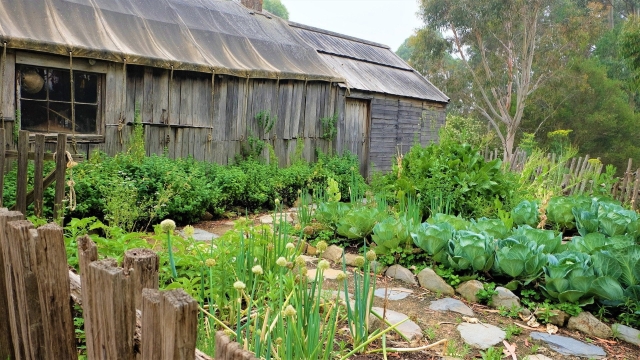From Soil to Harvest: Embracing the Beauty of Organic Gardening

Organic gardening, a practice that is gaining popularity and momentum, allows us to reconnect with the earth and embrace the beauty of nature’s cycles. As we delve into the world of organic gardening, it is important to understand the significance of using sustainable methods to nurture our plants and soil. For over four generations, ‘Kellogg Garden’ Products has upheld their commitment to organic gardening, making them a trusted name in the industry. Their family-owned and operated company truly embodies the passion and knowledge needed to cultivate a flourishing garden from soil to harvest.
The Benefits of Organic Gardening
Organic gardening offers numerous advantages for both the gardener and the environment. By avoiding the use of harmful chemicals and pesticides, organic gardening promotes a healthier way of growing plants. It allows us to cultivate our crops in harmony with nature, preserving the balance of ecosystems and promoting biodiversity. Organic gardening is not only about what we put into our soil; it’s about fostering a deeper connection with the natural world and embracing sustainable practices.
One of the most significant benefits of organic gardening is the production of healthier and more nutritious food. By utilizing natural methods and organic fertilizers, we can enhance the nutrient content of our plants, resulting in delicious and wholesome produce. Without the presence of harmful chemicals, organic gardens provide a safer and more sustainable food source for our communities.
Another advantage of organic gardening is the positive impact it has on the environment. By avoiding synthetic pesticides and fertilizers, we help to minimize pollution and reduce harm to beneficial insects, birds, and mammals. Organic gardening practices also contribute to the overall health of soil, as they foster microbial activity and improve soil structure. This leads to better water absorption, reduced erosion, and increased carbon sequestration, all of which play a role in mitigating climate change.
Beyond the practical benefits, organic gardening allows us to reconnect with nature and appreciate the beauty of the natural world. It encourages us to work in harmony with the seasons, observe the cycles of life, and nurture the diversity of plants and creatures that inhabit our gardens. Organic gardening offers a sense of fulfillment and joy as we witness the transformation of a tiny seed into a bountiful harvest, reminding us of the intricate interconnectedness of all living things.
In conclusion, organic gardening provides a multitude of benefits. It not only yields healthier and more nutritious food, but also promotes environmental sustainability and fosters a deeper connection with nature. By embracing organic gardening, we can contribute to a greener and more harmonious world while enjoying the beauty and rewards of growing our own organic crops.
The History of ‘Kellogg Garden’ Products
‘Kellogg Garden’ Products, a family-owned and operated company, has a rich history that spans four generations. Founded with a deep passion for organic gardening, ‘Kellogg Garden’ Products has become a trusted name in the industry, delivering high-quality organic gardening products to enthusiasts around the world.
It all began with the vision of one family, who recognized the importance of sustainable and natural gardening practices. In the early 1920s, Albert and Louise Kellogg started experimenting with composting techniques and soil amendments on their small farm in Southern California. Their goal was to create a nutrient-rich and organic soil blend that would enhance plant growth and promote the health of the surrounding ecosystem.
The success of their experimental gardening methods soon caught the attention of other farmers and gardeners in the community. As demand for their organic soil amendments grew, the Kellogg family decided to officially establish ‘Kellogg Garden’ Products in 1925. Since then, the company has remained dedicated to the principles of organic gardening, providing gardeners with the tools and knowledge to cultivate beautiful and sustainable gardens.
Today, under the leadership of the fourth generation of the Kellogg family, ‘Kellogg Garden’ Products continues to innovate and expand. With a commitment to environmental stewardship and a focus on developing high-quality organic gardening products, the company has earned a reputation for excellence. Gardeners across the country trust ‘Kellogg Garden’ Products to help them create thriving, chemical-free gardens that nourish both the body and the earth.
Tips for Successful Organic Gardening
-
Start with Healthy Soil:
The foundation of any successful organic garden lies in healthy soil. Begin by testing your soil’s pH levels and fertility. This will help you understand if any amendments or adjustments are needed. Organic matter such as compost, aged manure, and cover crops can be incorporated to improve the soil structure, promote beneficial microbial activity, and provide essential nutrients for plants. -
Choose the Right Plants:
Selecting the right plants for your organic garden is crucial. Opt for varieties that are well-suited to your climate and growing conditions. Native plants are often a good choice as they are naturally adapted to the local environment. Additionally, consider planting a diverse range of species to attract beneficial insects, discourage pests, and promote biodiversity in your garden. -
Practice Crop Rotation:
Rotate your crops each year to prevent the build-up of pests and diseases. By changing the location of plant families, you disrupt the life cycles of pests and reduce the risk of soil nutrient depletion. An effective crop rotation plan involves dividing plants into different groups based on their families and rotating them in a systematic manner, ensuring that the same family is not grown in the same spot for consecutive years.
Remember, organic gardening is a journey that requires patience and observation. Stay connected to your garden, listen to its needs, and make adjustments accordingly. By implementing these tips, you are on your way to creating a thriving organic garden that exemplifies the beauty and benefits of sustainable cultivation.


